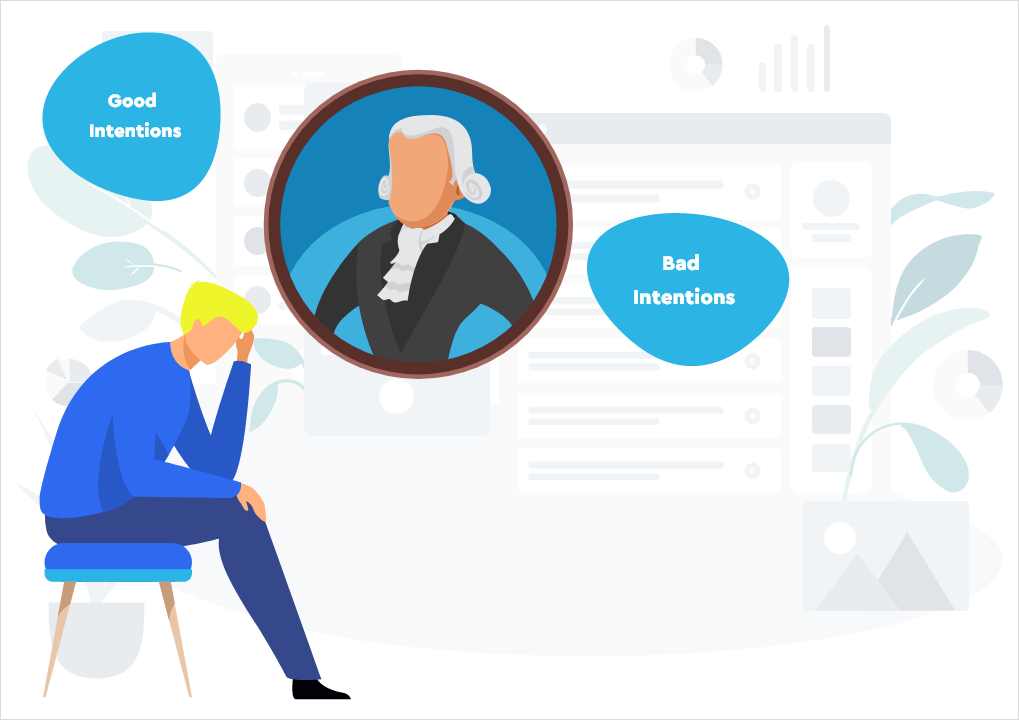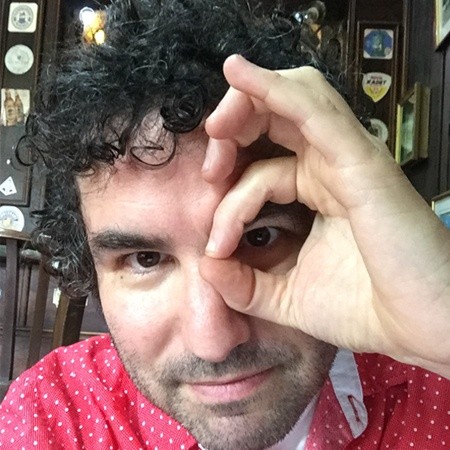Yes, this question has occupied the best thinkers in the world for a century and a half, and I will try to shed some new light on it. If Immanuel Kant were to run a Google AdWords or other PPC campaign, how would he run it?
Well, Kant created a universe of ideas, and today we’ll explore one of them alongside PPC: deontological ethics. In case you need a reminder deontological ethics can be summarized simply as the following. And yes, I’m waiting for all the Kant scholars to come and chop off my head for over-simplifying him.
How do we know if someone is a good person or not? We think, “let’s just see if they do good things” but the challenge with that is this: just because you act in a good way, that doesn’t mean you’re good. You could be acting good because you want to be seen as a good person. Or the cool kids are all acting good, so you’re acting good, too. What matters is what’s in your heart, your good intentions (your “will”). But your actions may not be commensurate with what’s in your heart nor your intentions. Too often, they’re the precise opposite. Of course, this has no application to (political movements of the times now), because everyone who supports (political movements of the times now) truly supports The Cause from the depths of their hearts, and that’s the one and the only reason they say the words they say.
Kant suggested an interesting way to square the circle. He observed that there is a class of actions that give us key insight into your motivations. These are the things you are required to do out of “duty” or pflicht to use his German word. Say, it’s my duty to pay my taxes or go to Synagogue on Saturdays. What’s interesting about your duties is that you kinda don’t want to do them. No one does (this is my interpretation of Kant, not his exact words). I don’t want to pay my taxes because there are much better ways I can spend that money, like visiting Basel. I don’t want to go to Synagogue on Saturday mornings because I’d rather sleep late or read a good book. Kant argues that since you don’t have to do these duties, there’s always an easy way around it. So, by choosing to fulfill the duties, you are revealing what is in your heart: the good intentions. And thus, determining your goodness by how well you fulfill the duties that your group gives you is the heart of my simplified version of Kant’s deontological ethics.
Now, let’s apply this to PPC. This is where it gets both fun and interesting.
Every PPC who runs non-tiny campaigns gets messages from Google reps every quarter or so, wanting to give you free account reviews and tips.
Here’s what every PPC knows: the Google account reps are salespeople because every piece of advice seems to boil down to “increase your budgets”. This is so common that if I were a PPC comedian I’d be making jokes about this non-stop. There are different versions of it: sometimes they explicitly tell you while other times they only hint at it. For example, like telling you to change the bidding type without letting you know that Optimized-for-Conversions bidding removes max CPC caps so your spend can zoom up unless you’re all over your budgets. That could be an “oops” but if I were more cynical, I would think it might be on purpose. Me? That level of cynicism? Never!
But it gets worse. Google seems to be moving in the direction of not just giving us their same “spending-increasing but not helpful for the campaign” as “Recommendations” on the interface and via reps but punishing accounts that don’t follow them. It seems like to get Google Ads certified, you will have to follow a certain % of the official account optimization Recommendations. Since most of their recommendations are terrible (from a client budget-optimization and conversion-optimization point of view; not from a Google revenue generation point of view), this is bad news.
So, let’s tie this into Kant’s Deontological Ethics. Google is effectively requiring us to do a bunch of actions: follow the recommendations on the recommendations tab. Follow the recommendations from your Account Exec. But, it is our duty to follow them since Google is effectively the master of the AdWords civilization, so they define what is our duty. And like with all duties, we can avoid them. I don’t have to follow the recommendations!
But, given that the recommendations are more harmful than helpful, I would fail the Deontological test, personally. And this is why Kant (striving hard to live up to his standard) would be terrible at PPC.





